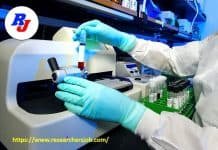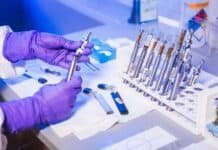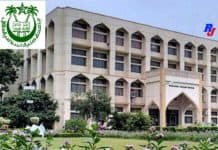Designation/Position- IIT Delhi faculty Recruitment
IIT Delhi, India, invites application for IIT Delhi faculty Recruitment from eligible and interested candidates
About- IIT Delhi invites applications from well-qualified Ph.D. Degree holders for the following faculty positions at the level of Professor and Associate Professor in its various Academic Units.
Research/Job Area-
The areas below mentioned against each Academic Unit are only indicative and not exhaustive. The Institute is open to receiving applications from outstanding candidates specializing in these and other related areas.(TABLE A): –
- APPLIED MECHANICS: Solid mechanics, Fluid mechanics, Design engineering and interdisciplinary areas of mechanics including but not restricted to Biomechanics, Nanomechanics, Multifunctional materials and structures, Structural health monitoring, Soft robotics, Machine learning in mechanics, Two-phase flows, Environmental fluid flows, Granular flows, Solid-fluid interactions, Naval Architecture, etc.
- BIOCHEMICAL ENGG. & BIOTECHNOLOGY: DBEB is an interdisciplinary department open to both scientists (biologists, chemists, physicists) and engineers (chemical, biochemical). We are particularly interested in candidates engaged in the rational development of processes for production of biochemicals using microbial, mammalian and plant cell cultures. We are equally interested in candidates involved in the development of enabling tools or technologies for the above processes such as metabolic engineering, synthetic biology, computational biology and systems biology.
- CHEMICAL ENGG: All areas of Chemical Engineering, the candidate should have a n undergraduate education in chemical or allied engineering disciplines.
- CHEMISTRY: For Professor: “Interfacial Electrochemistry for Renewable Energy and Environmental Science”.
- CIVIL ENGG: Environmental: Water and Waste Water Engg., Air Pollution Control Engg., Solid and Hazardous Waste Engg., Geotechnical: Geotechnical Engg., Geo- environmental Engg., Rock Mechanics, Rock Engg., Structures: Structural Engg., Construction Materials, Construction Management, Transportation: Transportation and Traffic Planning, Transportation and Traffic Engg., Pavement Engg., Water Resources: Water Resources Engg. and related Areas. NOTE: The candidate should have B.E./B.Tech. or equivalent degree in Engineering with Ph.D. in the relevant area.
- COMPUTER SCIENCE & ENGG : Priority areas for hiring are quantum computing, computational and systems biology, security and cryptography, autonomous intelligent systems, scientific computing, architecture and design automation, embedded and cyber-physical systems, parallel and distributed computing and systems, networks, data bases and data analytics, and collaborative computing. Outstanding candidates in other areas of computer science will also be considered. Candidates with an interdisciplinary or applied research focus are expected to demonstrate a strong research profile in core computer science areas.
- DESIGN: All areas of Design and Innovation including but not limited to Industrial Design, Product
Design, Engineering Design, Design Creativity, Design Theory & Methodology, Applied Ergonomics and
Human Factors in Design, Universal and Inclusive Design, Participatory Design, Design Automation and
Design Optimization, Design Computing and Design Informatics, Materials and Design, Design for Product
Life-Cycle, Art and Design, Form and Aesthetics, Digital Media Design, Social and Cultural aspects of Design, Design policy, Design Strategy, Design Management, Toy and Game Design, Information Design, Service Design, Automotive Design, Design for UX,UI, HCI, Graphic Design, Communication Design.
- ELECTRICAL ENGG: In all areas of Electrical Engineering including Electronics & Circuits, Control& Automation, Communication, Computer Engineering, Power Systems, Power Electronics, Machines & Drives.
- ENERGY SCIENCE & ENGINEERING: For Professor: Plasma Science and Technology, Solar Thermal Technology, Electrical Power Systems, Thermal Energy Storage and Management. For Associate Professor: Experimental Plasma Science and Technology.
- HUMANITIES & SOCIAL SCIENCES: Economics: Microeconomics, Macroeconomics, international trade, and public finance. Exceptional candidates in other specializations may also apply. Linguistics: Semantics, Neuro-linguistics, Phonology, Comparative Syntax, Theoretical/Formal Syntax, Psycholinguistics, Language Acquisition, Computational linguistics. Literature: Indian Literature, Gender and feminism, Literature Theory, Twentieth Century literature, South Asian literature, Contemporary literature, The City. Philosophy: All sub-disciplines of philosophy, with a special focus on the following areas: ethics, metaphysics, history of philosophy, political philosophy, philosophy of law, logic, epistemology, philosophy of mind, environmental philosophy, feminist philosophy, philosophy of culture, philosophy of religion, philosophy of technology, and philosophy of science. Applications are especially welcome from philosophers with access to philosophical texts in non-English languages, and who belong to diverse traditions of philosophy in different parts of the world. Psychology: Social Psychology, Positive Psychology, Cognitive Psychology, Neuropsychology, Computational Psychology.
- MANAGEMENT STUDIES: Operations & Supply Chain Management, Marketing Management,
Strategic Management, Technology Management, Telecom Systems Management, Human Resource
Management, Organizational Studies, Corporate law, Finance, Economics, Information Systems, Business Analytics-Big Data/Natural Language Processing/Deep Learning/Al, Digital Transformation- loT/Blockchain/Information Security Management, Entrepreneurship.
- MATERIAL SCIENCE AND ENGINEERING: Electron microscopy, functional and structural ceramics, Materials for renewable and sustainable technology, process modeling, nuclear materials and irradiation, semiconductor processing, crystal growth and epitaxy, thermodynamic modeling of materials, atomistic and coarse grain modeling on metals and functional materials, polymer rheology and processing, materials degradation and corrosion.
- MATHEMATICS: All areas of Pure and Applied Mathematics, Theoretical Computer Science, Probability and Statistics.
- MECHANICAL ENGG: “All areas of Design and Production and Industrial Engineering-Operations Research & Analytics. Further, outstanding candidates in the area of thermofluids with strong fundamentals inthe domain of their specialization. Applicants in the areas of Industrial Engineering-Operations Research & Analytics specializations are especially encouraged to apply”.
- PHYSICS: Quantum Materials and Technology, Quantum Information Systems, Applied Optics, Optoelectronics, Quantum Photonics, Atomic and Molecular Physics, Plasma Physics with emphasis on interdisciplinary research, Astrophysics, Experimental High Energy Physics, Experimental and Theoretical Condensed Matter Physics (including Soft Matter and Statistical Physics).
- TEXTILE & FIBRE ENGINEERING: Textile Engineering, Textile Technology, Textile Chemistry, Fibre Science & Technology, and other Engineering and Science (such as Civil, Mechanical, Chemical, Electrical/Electronics, Materials, Polymers, Mathematics, Physics, Chemistry, Bio- Sciences and Management) with demonstrated research experience in areas relevant to textiles and fibres.
- APPLIED RESEARCH IN ELECTRONICS (CARE) : Microwaves and RF: RFIC and RFMEMS, Imaging and Surveillance, RF Digital Co-design, Active and Reconfigurable Antennas and Arrays, High Power Solid-State Systems, Non-linear Modeling and Measurements, Components & Systems up to THz; Microelectronics: MEMS and Microsystems, Micro sensors development for defense and space applications, High speed electronic devices and circuits, Quantum Electronic devices for Quantum Information Technology; Signal Processing: Acoustic Signal Processing, Underwater and Air Acoustics, Speech and Audio Processing, Signal Processing for Communications, Sensor Array Signal Processing, Multi-sensor Data Fusion, Machine Learning for Signal Processing, Signal Processing for Internet-of- Things; Multi-disciplinary: Modern Radar Systems.
- ATMOSPHERIC SCIENCES (CAS): All areas of Atmospheric and Ocean sciences, candidates with expertise in atmospheric observation are particularly encouraged to apply. More details about CAS are available here: https://cas.iitd.ac.in/..
- AUTOMOTIVE RESEARCH AND TRIBOLOGY (CART): Power Electronics for EV applications,
EV charging infrastructure and smart charging solutions, Vehicular Telematics and Embedded system for EVs, Connected and Autonomous EVs, Vehicle dynamics and control, Condition Monitoring for EV components, Materials for EV components.
- BIOMEDICAL ENGG. (CBME): Bio-Instrumentation: Electrical Engg. Electronics, Medical Sensors, Biomechanics: Medical Implants, Mechanical Engg, Design Engg., Production Engg., Material Science & Engg., Bio-Imaging: Electrical, Electronics, Optical, Biomaterials: Manufacturing, Processing, Characterization.
- RURAL DEVELOPMENT AND TECHNOLOGY (CRDT): Rural Resources, Energy systems & Infrastructure; Resilience & Climate Change; Disruptive Technologies; Engineering Design, Artisanal/Agricultural Tools & Crafts; Indian Knowledge system, Skill Development & Entrepreneurship; Water resource management, Sanitation & Soil Health; Microbial & Biomass Technologies; Food science & Nutrition, Food processing & Technology (All above areas in rural context)
- SENSORS, INSTRUMENTATION AND CYBER-PHYSICAL SYSTEM ENGINEERING (SeNSE):
(more details at http://bit.ly/SENSE–faculty–advertisement).
- TRANSPORTATION RESEARCH AND INJURY PREVENTION ENTRE: TRIP-Centre(Transportation Research and Injury Prevention Centre) at IIT Delhi invites applications from well qualified Ph.D. degree holders with a strong academic background for the posts of Associate Professor and Professor specializing in transport planning and traffic safety, Automotive safety, Impact biomechanics, sustainable transport safety; vehicular pollution, transport economics, transport geography (statistics/epidemiology with a focus on population and demographics. Applicants can seek joint appointments in suitable Departments and Centres at IITD. TRIP Centre is a new academic unit established in May, ’21. The Centre promotes and facilitates collaborative research and technology development in transportation research and injury prevention field.
- BHARTI SCHOOL OF TELECOMMUNICATION TECHNOLOGY AND MANAGEMENT (BSTTM): All areas of telecom technology and management.
- AMAR NATH & SHASHI KHOSLA SCHOOL OF INFORMATION TECHNOLOGY (ANSKSIT) Computational Neuroscience, Medical Applications of Information Technologies, Computational & Systems Biology, Embedded Systems & Sensors, Computer Security, Internet of Things (IoT).
- SCHOOL OF PUBLIC POLICY (SOPP): (i) Agriculture, Food and Water: Social, institutional and policy processes utilizing technological interventions or affecting technological change in the agriculture, food and water sectors for economic development, environmental sustainability and public health; (ii) Energy and Environment: Governance of socio-technical transitions in the energy sector, and associated issues related to the role of technology in addressing climate change adaptation and mitigation and other sustainable development challenges, air quality management, energy access, energy security and institutional reform in the energy sector; (iii) Internet, Digital Information and Society: Data science in public policy, automation and the labour market, AI and ethics, algorithmic bias, methodological innovations in causal inference and impact assessment, internet/social media and policy, digital information and privacy, voting technologies; (iv) Innovation Systems and Processes: Role of policies in strengthening actors, networks and institutions (and vice versa) to enhance the direction and pace of technological change, i.e. the invention, innovation and diffusion of new technologies to address key societal challenges; (v) Industry and Economy: Technological capabilities of India’s industrial enterprises ranging from large, established firms to startups, developing policies to enhance these capabilities and directing them to better engage with India’s developmental challenges; (vi) Sustainable Habitats: Policy questions related to affordable housing, transportation and mobility, land use and zoning, gender and inclusion, urban governance and institutions, informality and the informal sector, role of ICTs and other technologies in urban development, and smart cities; (vii) Technical Higher Education: Patterns of research and educational performance of technical higher education institutions and developing policies to strengthen these institutions; understanding issues relating to broadening participation in S&T-relevant education and training, especially marginalized groups/communities.
- SCHOOL OF ARTIFICIAL INTELLIGENCE (ScAI) : In all areas of artificial intelligence, Subareas of interest include (but are not limited to) deep learning, reinforcement learning, probabilistic models, data mining, information retrieval, multi-agent systems, knowledge representation and reasoning, mathematical foundations of AI, ethics of AI, applied AI such as NLP, computer vision, robotics, AI on the edge, etc., andapplications of AI to domain areas such as healthcare, agriculture, education, industry 4.0, etc. ScAI strongly encourages applicants with demonstrated track-record of working at the intersection of an application area and the AI fields.
TABLE-B: COMPUTER SERVICES CENTRE Specializations:-
Systems: Virtualization, AD and LDAP, Kerberos, Network Storage Management Systems, NFS and CIFS Shares, Shell, Scripting, CGI, Perl Scripting, Python, Systems Programmingfor Windows, Linux, MAC, Security Infrastructure Security, Apache, Cloud Computing, Parallel Computing, HPC.
Network Programming: Firewalls, Network Management, Mail Configuration and Management, Webhosting, VPN, Proxies, https, Programming and Monitoring of Switches, Routers, Hubs, etc.
Applications: Web Application Development, Database Management, and Administration, Web Security, Scripting, CMS, Java, Spring, Hibernate, Reporting Tools like Jasper, Framework knowledge of different Languages/Scripting Languages, SVN.
General requirement (Optional): CCNA, CDCP, PMBOX, Vmware, Java, ITIL , etc. certification will be optional at Senior and Middle-level positions (for Sr. System Manager(SG) and System Manager). Certification on any of the above at entry level (System Architect level) is mandatory.
Location- IIT Delhi
Eligibility/Qualification–
Ph.D with First class or equivalent grade at the preceding degree in an appropriate branch/discipline with a goodacademic record throughout.
EXPERIENCE (Required as on the last date of applications: PROFESSOR:
Minimum 10 years Teaching/Research/Industrial experience of which at least 4 years should be at the level of Associate Professor in IITs or in similar institutes of national importance or at an equivalent level in any other Indian or foreign institutions /institutions of comparable standards.
ASSOCIATE PROFESSOR:
Minimum 6 years Teaching/Research/Industrial experience of which at least 3 years should be at the level of Assistant Professor or equivalent in IITs or similar institutes of national importance or at an equivalent level in any other Indian or foreign institutions /institutions of comparable standards.
Job/Position Description-
Academic Units
| Post | Pay Level |
| Professor | Rs.1,59,100 – 2,20,200/- (minimum pay of Rs.1,59,100/-) in Academic Level 14A |
| Associate Professor | Rs.1,39,600 – 2,11,300/- (minimum pay of Rs.1,39,600/-) in Academic Level 13A2 |
How to Apply-
It is a requirement that candidates use the IIT Delhi website (https://home.iitd.ac.in/jobs- iitd/index.php)to fill up and submit applications online for the faculty above position. The website also contains useful information about working and lining at IIT Delhi and the recruitment process.
As a precaution, after applying through the website, please retain a copy of the application. Candidates employed with Government/Semi-Government Organizations or with Autonomous Bodies must print a copy of the electronic submission and submit the printed version through the proper channel at the address below. Candidates who have applied online may please log in to our site (https://ecampus.iitd.ac.in/IITDFR-0/login) and check the status of whether their applications have been received or not.
Address for Correspondence:
Faculty Recruitment Cell (E-I)
Indian Institute of Technology Delhi, Hauz Khas, New Delhi-110016, INDIA
Telephone: +91-11-2654-8733 & E-mail: fac_recruit@admin.iitd.ac.in
For any technical help, please contact through email at eadminhelp@iitd.ac.in or Ph. 011-26597220
Last Date for Apply– Rolling
This is a rolling advertisement. There is no last date. However, the processing of the applications by the Academic Unit will be done in two cycles every year, and the deadlines are, respectively, the First Cycle – on 31st December and the Second Cycle – on 30 June of the respective year.
Join Our Discussion Forum – Keep your view, share knowledge/opportunity and ask your questions









